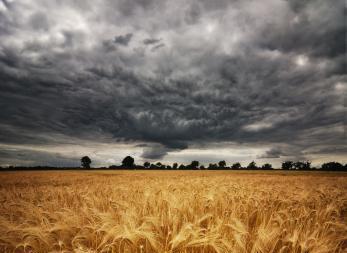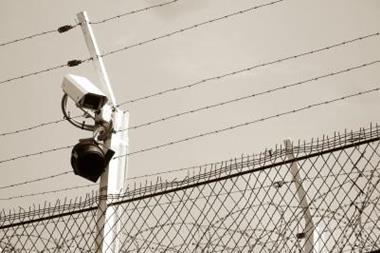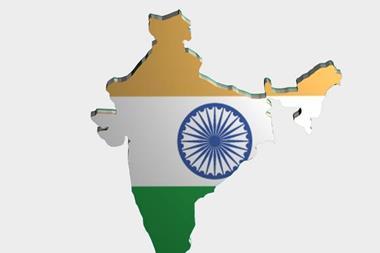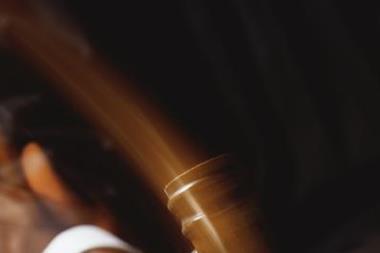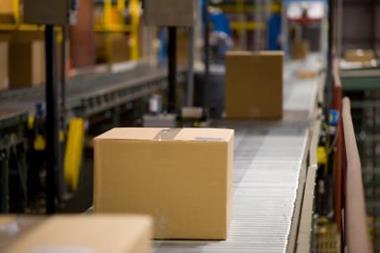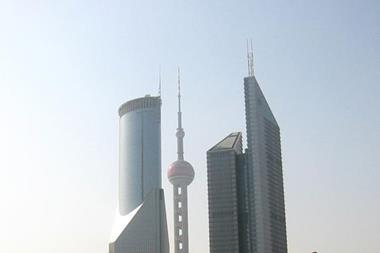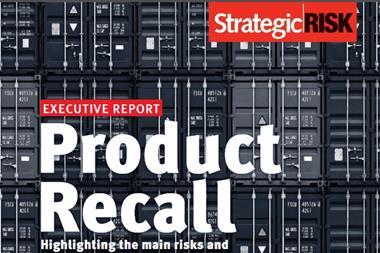The world increasingly depends on Chinese products, but recent high profile recalls are raising concerns about production standards. Trevor Davies considers the issues.
It has been a bad year for Chinese products, and August was a particularly bad month for Mattel. In that month alone there were two recalls by Mattel involving nearly 20 million toys, while over 100,000 children's drink bottles were recalled by Asda, all made in China. Not to be outdone, 520 Bentley sports saloons (sale price of each in excess of £220,000) have been recalled over fears that the wheels may become loose (although China can presumably plead not guilty in connection with that particular case).
In New Zealand and Australia they instigated a voluntary recall of clothing and blankets made in China, which were found to contain high levels of formaldehyde, and retailers have called for urgent testing of clothing imported from China. Apparently, laboratory tests showed that some clothes contained levels 900 times the acceptable levels.
Meanwhile, Wal-Mart, the largest retailer in the world, tested two Chinese brands of dog treats sold in its stores and found traces of melamine, a clinical agent that led to the major pet food recall in March this year. Wal-Mart stores stopped selling Chinese produced 'Chicken Jerky Strips' after customers said the products made their pets sick.
In August too, a Chinese newspaper reported that a Beijing factory had recycled used chopsticks and sold as many as 100,000 pairs a day without any form of disinfection. Officials raided the factory and seized about 500,000 pairs of recycled disposable bamboo chopsticks and a packaging machine. The factory owner, identified only by his surname Wu, said that he had sold the recycled chopsticks for 0.04 Yuan a pair and made an average of about 1,000 Yuan, or $130 a day.
What is worse, mislabelled drug ingredients in Chinese exports have allegedly been blamed for killing and injuring people in Panama and Haiti. Add to that the tragic suicide of a toy factory owner in China and the recent execution of a senior Chinese government drug official, and it becomes clear that all is not well in China's world of product manufacturing.
The latest recalls of toys, children's drink bottles and clothing follow on from a number of high profile recalls of Chinese products this year, in the US in particular, varying from unsafe tyres, toxic toothpaste and lead painted Thomas the Tank Engine toys, to contaminated seafood, tainted honey and even poisoned pet food (allegedly up to 39,000 American cats and dogs were harmed or died as a result).
In July, in what could be a tit for tat reaction, China reacted to US complaints by imposing a suspension on some US meat imports, and this was repeated again in August. Indeed, their response generally to safety complaints was not initially sympathetic. Back in April, The People's Daily allegedly stated ‘The poisoning of American pets has nothing to do with China’. This contrasts with their most recent, in some respects somewhat severe, response in attempting to clamp down on poor safety standards.
Addressing safety
“Product recall insurance cover is still to some extent in its infancy
In the last month or so, the Chinese authorities have closed down at least three companies and have arrested a number of people. As mentioned, one senior official has been executed, having been charged with bribery and corruption in connection with the manufacture and sale of pharmaceutical drugs. This was Zheng Xiaoyu, the head of the state food and drug administration from 1998 to 2005. It was of no comfort to his family to know that he was the highest level Chinese official executed since 2000. Another was sentenced to death but subsequently had his sentence reprieved.
On 27 August the Chinese government revealed the details of a variety of measures they are taking to ensure product quality and safety. Some commentators have suggested their campaign might only have a limited effect, given the weak rule of law. By contrast, however, the response of multinational corporations whose products are sourced in China and whose brand name and customer goodwill are reliant upon Chinese manufacturing standards, may have a more lasting and effective impact.
The Chinese government has set up a cabinet level group to address quality and safety issues. Headed by vice premier Wu Yi, it has launched what it calls ‘a special war’ against poor product safety and regulations. Ms Wu is apparently known to some as China's iron lady. She has built a formidable reputation abroad and at home for her ability to deal with crises and foreign pressures, and is often called in when others fail. Indeed, she helped negotiate China's entry into the World Trade Organisation, was named Minster of Health to deal with the severe acute respiratory syndrome (SARS) crisis in 2003 and heads the new strategic dialogue between the US and China.
The group's campaign has set 20 targets to be achieved before the end of the year. It remains to be seen whether the outcome will be successful, or will to some extent paper over the cracks.
US concern
According to the Consumer Product Safety Commission, nearly half of all product recalls in the US in 2006 were of Chinese origin, compared to a quarter of total recalls in 2002. US senators, not just Republicans, are calling for a review of safety standards generally relating to Chinese imports and are adopting a protectionist stance – perhaps not wholly altruistically. On 28 August, two US law makers said that Congress should act soon to address the issue of Chinese food and product safety, something Beijing should not take as ‘a trumped-up political act’, as they put it.
Representative Rick Larsen, a Washington Democrat, said that he saw the recent safety scares as presenting an opportunity for China and the US to work together to solve the problems, 'but it is going to mean Congress taking some action in September on food and product safety'. He and his colleague Mark Kirk, an Illinois Republican, are preparing draft legislation which would involve placing ‘Food and Drug Administration and Consumer Product Safety Commission inspectors directly at sites in China where goods are produced for export to the United States’.
Apparently their proposed Bill would also greatly increase the liability of US based importers of goods that prove to be defective. Kirk commented, ‘We are going to have some dramatic times ahead, I think, on food and product safety’. Larsen stated, ‘It's visceral. It's about your child and it's about your pet, and it's about your food on the table. You cannot get more personal than that for Americans, and so it does need to be addressed.’ Whether the dramatic proposals recommended by Messrs Larsen and Kirk ever become US law remains to be seen.
“Mattel alone sources 65% of all its products in China
British Minister Lord Malloch-Brown adopted a more restrained approach, stating that it would be a great mistake ‘for China to see this as a protection issue’ but encouraged the country to take ‘vigorous action’ to improve standards.
EU recalls
On any scale, this is a potentially serious problem. In the past 29 years, the annual growth of Chinese exports has been 17% per annum. China is fast becoming the world's production house in almost every sector. Mattel alone sources 65% of all of its products in China
Last year almost 50% of all European product safety recalls involved goods manufactured in China. Twenty five per cent of them involved toys, and 80% of toys sold worldwide are made in China.
None of this comes cheaply. Following their first recall in August of just over a million toys, Mattel announced it would cost them in the region of US$30m. Their second recall may involve as many as 18 million toys, so their losses for August alone could hit nearly US$100m. And this does not take into account the potential damage to brand, not just to Mattel, but of the ‘made in China’ tag.
Product recalls are always expensive. Cadbury estimates that the recall of their salmonella tainted chocolate bars cost them in the region of £20m (excluding any damage to brand value), not to mention the £1m fines recently imposed on them. The recall of Sony laptop batteries last year is thought to have cost several hundred millions of dollars.
Hungry US attorneys are already sharpening their lead-free pencils on behalf of potential clients. Within days of Mattel's first recall, one law firm filed proceedings in the Central Court in Manhattan on behalf of a purchaser, based in Florida, who had purchased a recalled ‘Dora the Explorer’ toy. They are now seeking class action status, claiming that Mattel were 'reckless and negligent in allowing lead tainted toys to reach the market'.
Product recall insurance cover is still to some extent in its infancy, with many companies choosing to self insure against such events. Now, underwriters will want to carry out careful due diligence before rating risks in any sector where there is heavy reliance on Chinese products. This will include checking contract specifications and the manufacturer's safety standards, and quality control checks. There are likely to be stringent warranties imposed upon insureds to ensure a regular review of safety controls imposed upon their Chinese manufacturers.
As high profile recalls continue to hit the headlines and companies see the costs involved potentially running into tens of millions of dollars, recall cover is likely to become a must have item, particularly for any supplier sourcing its products from China.
Postscript
Trevor Davies is managing partner and a specialist in product liability at Davies Lavery solicitors. www.davies-lavery.co.uk





